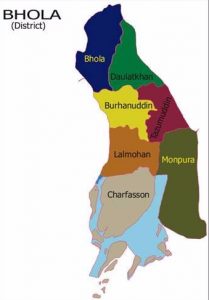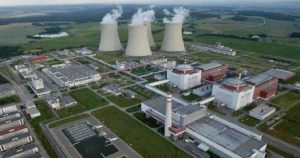The World Bank, acting as administrator for the Global Partnership on Output-Based Aid (GPOBA), has signed a US$15 million grant agreement with the Government of Bangladesh to increase access to clean energy in rural areas through output-based aid (OBA) subsidies.
The grant is expected to benefit 1.1 million people living in poor, remote areas of Bangladesh that fall outside the national electricity grid.The release said that this new project will make clean energy affordable to low-income households through off-grid solutions by buying down the capital cost of 225,000 solar home systems (SHS), and 2,500 mini-grid connections.
The grant will also facilitate investments in solar-pumped irrigation to 6,600 farmers, reducing the negative fiscal and environmental impact of diesel pumps. While the solar-based aspect is the main feature of this project, the grant will also improve family health by providing clean cooking solutions for over 9,850 households through biogas plants.
The Infrastructure Development Company Limited (IDCOL) – the state-owned infrastructure finance company – will implement the project, in partnership with micro-finance institutions, non-governmental organizations, and private sponsors.
“Bangladesh has set a global standard in establishing a successful output-based aid facility for renewable energy development. GPOBA is pleased to expand support in the second phase of the Rural Electrification and Renewable Energy Development (RERED II) program by making access to a wider array of clean energy options affordable to poor households,” said Catherine Commander O’Farrell, newly-appointed Head of GPOBA, in a press release.
A recent impact study shows that SHS adoption leads to welfare gains ranging from improvements to meal preparation conditions and reducing incidence of gastrointestinal and respiratory diseases, to expanding study time for children.
The GPOBA grant contributes to these impacts, as well as continued job creation in green technology, support for the government’s strategy of providing universal access to electricity by 2021 through off-grid solutions, and the goal of transforming Bangladesh into a middle-income country.
“Bangladesh has the fastest-growing solar home system program in the world, bringing electricity to remote households that are off the grid. The program has helped millions of men and women in rural areas to realize increased income and growth opportunities, and it has also helped millions of schoolchildren keep up with their school work,” said Johannes Zutt, World Bank Country Director for Bangladesh, Nepal and Bhutan.
The World Bank has supported RERED since its initial establishment in 2003 through an innovative OBA financing mechanism that links disbursement to verified outputs.
Since 2010, GPOBA has already provided grants of almost US$14 million in support of the initial RERED program through subsidies and technical support, providing access to solar-powered electricity for more than 2.2 million beneficiaries.- UNB




